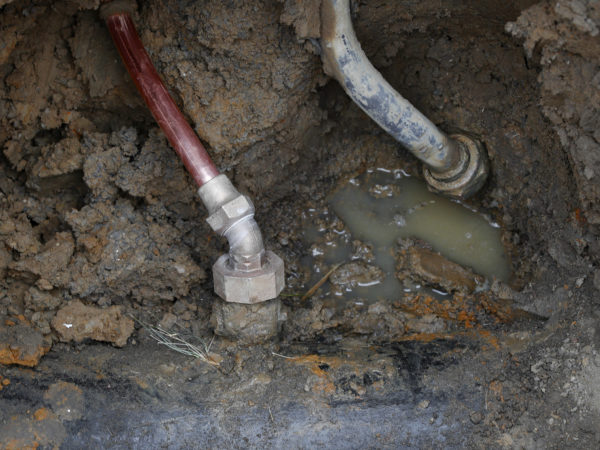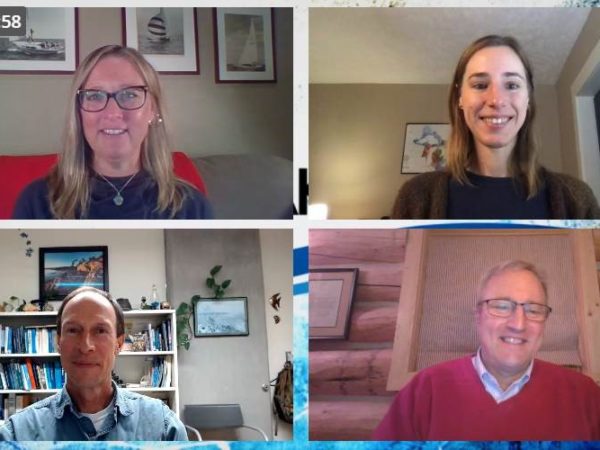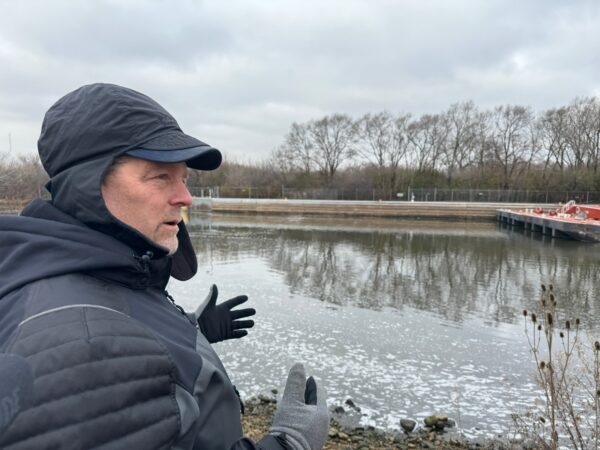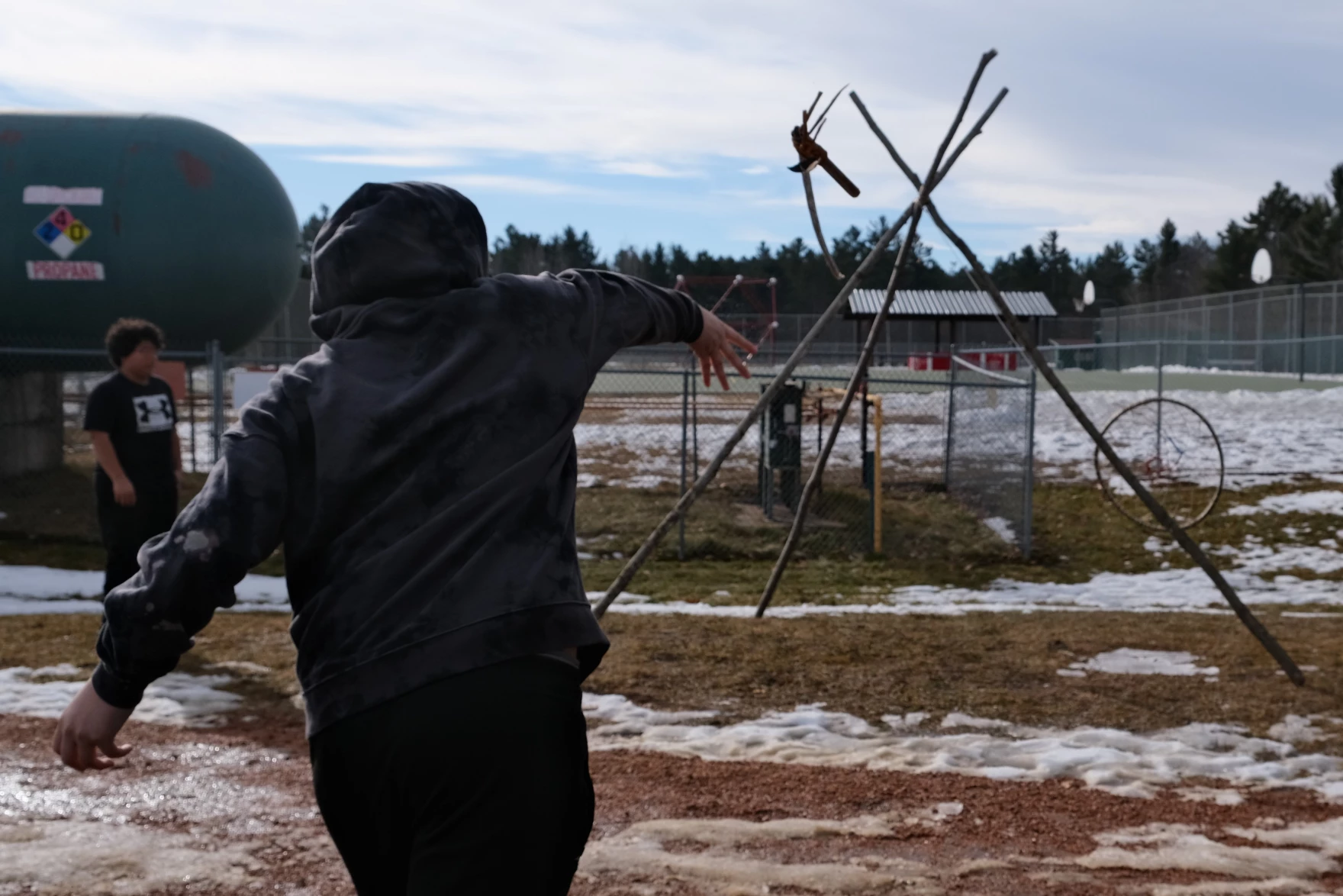
This story was originally published by WXPR. WXPR is a community-licensed public radio station serving north central Wisconsin and adjacent areas of Michigan’s Upper Peninsula. Listen to their stories here.
Lac du Flambeau 6th Grader Gertie Moustache pulls a wooden, dulled spear from a bin.
She steps up to the end of a long, skinny track with small snowbanks built up on either side.
Moustache gets low and thrusts the spear down the chute. Her spear doesn’t make it too far on the first go.
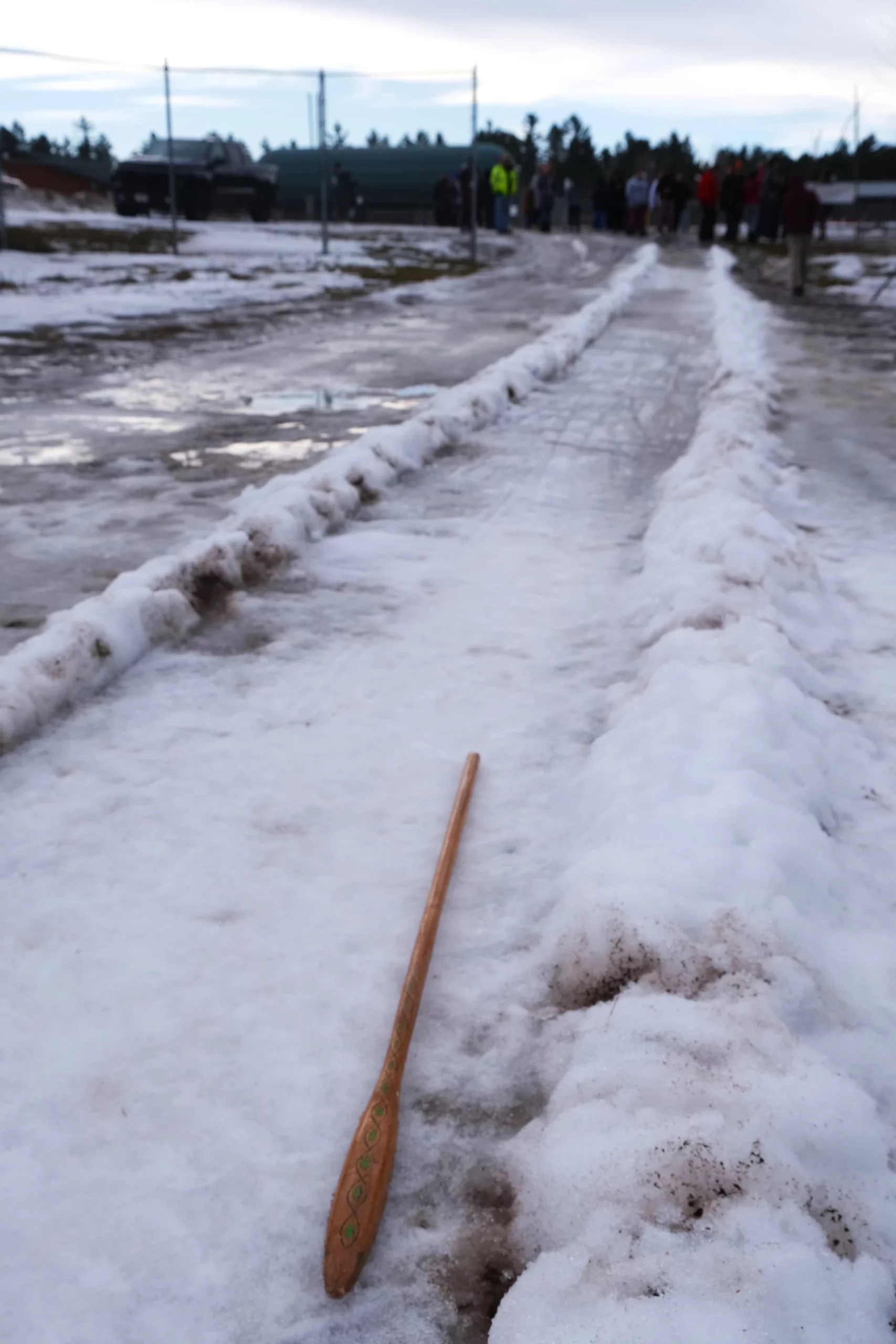
Katie Thoresen/WXPR
All the 6th grade girls take a turn at the snow snake game.
A few are able to send it fairly far down the long track.
Ahead of their attempts Wayne Valliere teaches all the 6th graders how the game got started or at least how they think it got started.
“Before they had the bow and arrow, before they had before they had the atlatl, they had zhimaagan, the spear, that they killed everything with. They had to throw it and they were expert throwers, throwing their zhimaagan, to kill animals,” Valliere told the students. “So one day in the snow, somebody threw that spear and all of a sudden it starts to slide on top of the snow.”
He explained the spear looks similar to a snake as it glides across the snow.
“The next guy bent down, took his spear and slid it on the snow farther and says, ‘I beat you.’ That’s probably how it started,” Valliere said.
The Ojibwe Winter Games are a relatively returned to tradition to Lac du Flambeau.
Valliere told the students the area went 175 years without the games until they were brought back 12 years ago.
“We brought this back into our community. Our ancestors are smiling right now seeing us do this,” he told the students.
All week students from the Lac du Flambeau School have been participating in different games.
They range from throwing an atlatl at fake animal targets and trying to throw a spear through a webbed hoop to shooting pellet guns, with the help of the Lac du Flambeau Police Department, and racing one another on snowshoes.
The students understand the importance of the Ojibwe Winter Games.
“Because they’re part of our culture,” said Moustache.
Mostly they just love to be outside and playing the games.
“It’s just fun to meet with all your friends,” said 6th grader Cain Labarge.
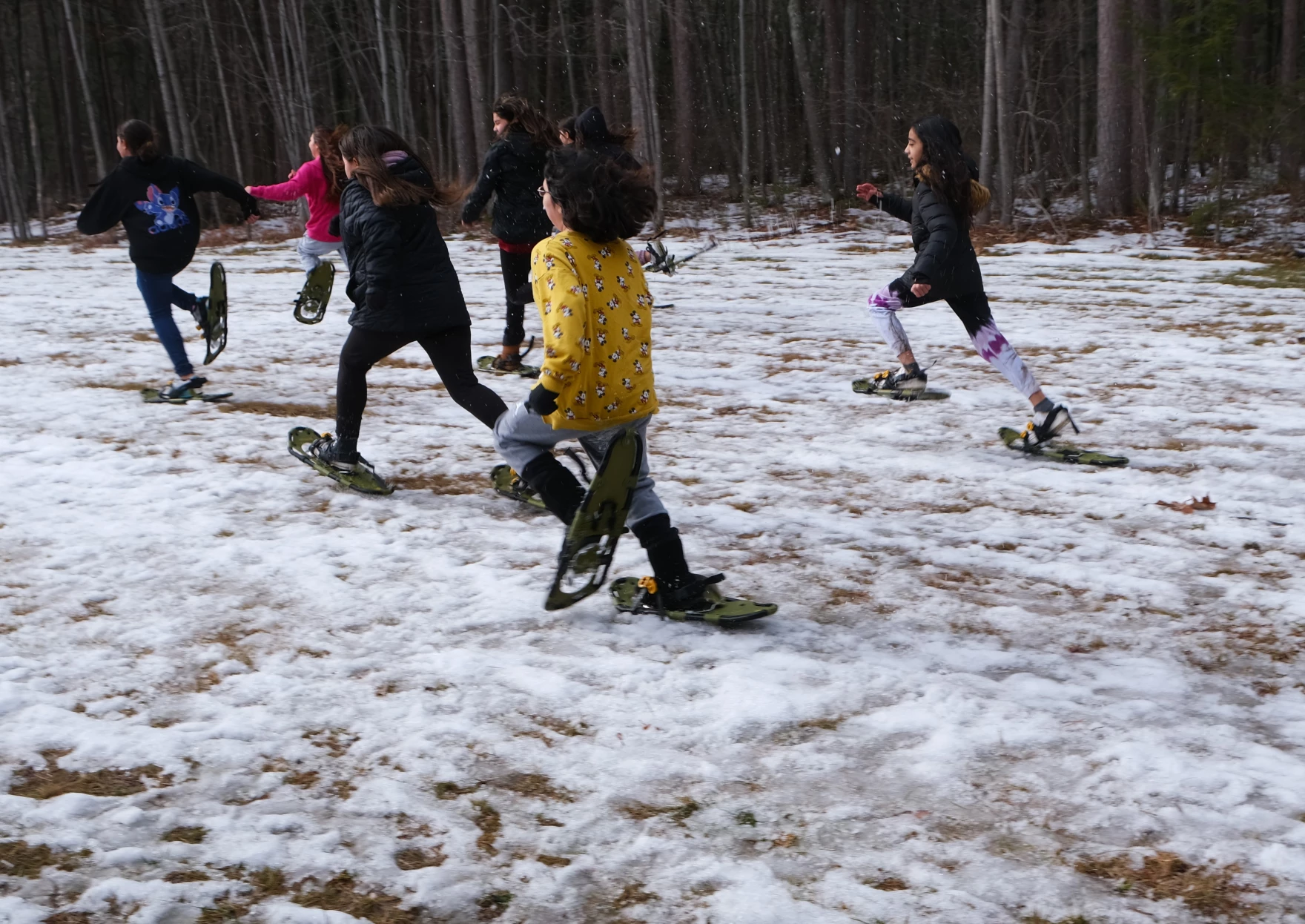
Katie Thoresen/WXPR
As Director of Ojibwe Language and Culture at the school, Wayne Valliere stresses that as the department teaches Anishinaabemowin, it’s being taught culturally.
“We say for example, we tan a deer hide or build a birch bark canoe, we employ all of the verbs and the nouns. Our children are seeing it, they’re handling it, they’re getting to know it,” said Valliere. “We’re planting the seed, planting the seed of identity in each one of our children. It’s just beautiful to see it, to see it grow that seed and see them become very proud of who they are.”
It makes Valliere proud to see this generation learn skills and traditions that were lost to so many before them.
He says it will be up to them to keep passing it along like his elder told him, saying it took Europeans and Americans 100 years to take the language away from his community and it will take 100 years to get it back.
“The way I look at it, I’m doing the first 25 years, they’re going to do the next 25 years, you’re going to teach people what you know, and they’re going to do the next the next 25 years. After they teach the next group, it’s that fourth group that’s going to become Oshki Anishinabeg, he said, The New Indian, the New Indians that are going to be powerful in the future, being because they’re connected to their environment and our ancestors,” said Valliere.
The environmental aspect of that has been a growing concern for Valliere as well.
He worries about the drastic changes he’s already seen in his lifetime where the environment is concerned.
“Look around us. We have bare patches, and we’re talking February 6. I don’t know how many years it’s been since it’s been like that, but I’ve never seen it like this in my lifetime. There is drastic change happening,” said Valliere. “I’ve seen three different berries that ripen throughout the summer. All ripe, but at the same time, I’ve never seen that in my life before. That is change that is scary. Seasons overlapping, warming trends that last too long, cold snaps that last longer. We as the human tribe, we need to wake up.”
That’s why, in addition to his cultural work, Valliere has been working to instill strong environmental values in his teachings.
He equates it to treating the Earth as we would our own grandmother.
“We don’t throw garbage on our own grandmother, do we? We don’t cut all her hair off. We don’t cut her arms off. That’s what the trees are. The hair is the grass, is the plants. We respect those things, take only what we can use and leave some for seed. These things are customs. We try to follow them. We try to instill them in our children, because they’re the future of it. We don’t want our stories forgotten. We don’t want our language forgotten. We don’t want to our ancestors and what their trials and tribulations forgotten,” said Valliere.
Catch more news at Great Lakes Now:
Warm winters are a wet blanket for small ski slopes in northern Michigan
Michigan’s lost winter cancels sturgeon season, ski, dog sled races
Featured image: Students try to throw the spear through the moving target. (Katie Thoresen/WXPR)


